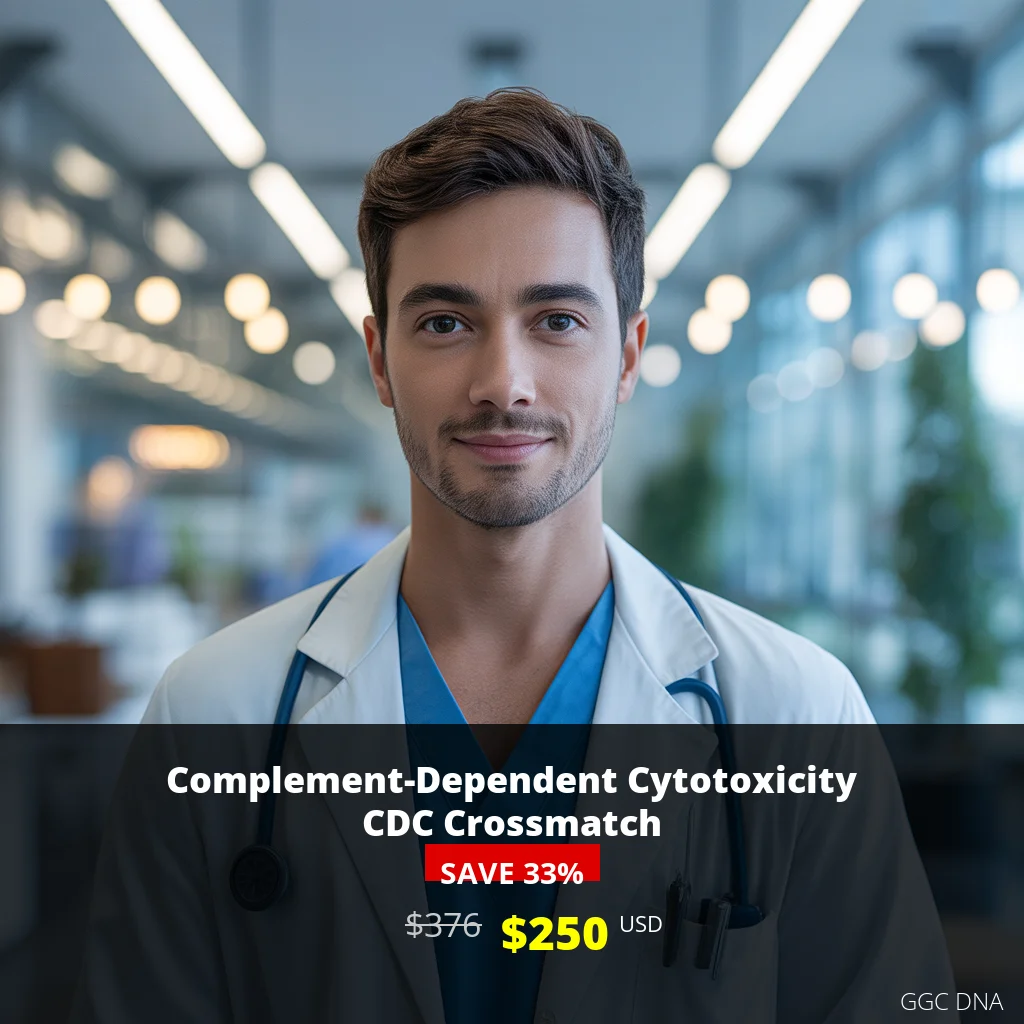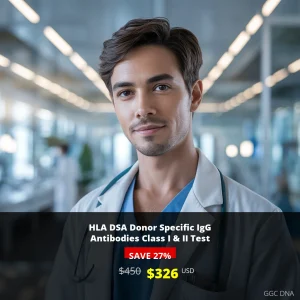Complement-Dependent Cytotoxicity CDC Crossmatch Test
Understanding the CDC Crossmatch Test
The Complement-Dependent Cytotoxicity (CDC) Crossmatch represents a cornerstone of transplant immunology, serving as a critical pre-transplant screening tool that has revolutionized organ transplantation success rates. This sophisticated immunological assay detects the presence of donor-specific antibodies in potential transplant recipients, providing essential information that directly impacts patient safety and transplant outcomes.
Developed over decades of transplant research, the CDC Crossmatch test operates on fundamental immunological principles to identify antibodies that could trigger immediate organ rejection. The test’s reliability and clinical significance make it an indispensable component of modern transplant protocols, helping medical teams make informed decisions about organ compatibility and recipient selection.
What the CDC Crossmatch Test Measures
The CDC Crossmatch test specifically detects and measures:
- Pre-formed donor-specific antibodies in recipient serum
- Antibody-mediated complement activation potential
- Cellular cytotoxicity against donor lymphocytes
- Immunological compatibility between donor and recipient
- Risk factors for hyperacute rejection
This comprehensive assessment evaluates the recipient’s immune response to donor antigens, particularly focusing on HLA (Human Leukocyte Antigen) antibodies that could initiate immediate graft destruction. The test’s sensitivity allows for detection of both high-titer and low-level antibodies that might compromise transplant success.
Technical Methodology
The CDC Crossmatch employs a sophisticated laboratory technique where recipient serum is incubated with donor lymphocytes in the presence of complement. If donor-specific antibodies are present, they bind to donor cells and activate the complement cascade, leading to cell membrane damage and eventual cell death. The degree of cytotoxicity is then quantified, providing a clear indication of immunological compatibility.
Who Should Consider CDC Crossmatch Testing
This essential screening is recommended for:
- Patients awaiting organ transplantation (kidney, heart, liver, lung)
- Individuals with previous transplant history
- Patients with known sensitization events (blood transfusions, pregnancies)
- Recipients with autoimmune conditions
- Patients with previous graft rejection episodes
- Individuals with high panel reactive antibody (PRA) levels
Clinical Indications
Healthcare providers typically order CDC Crossmatch testing when:
- A potential donor organ becomes available
- Evaluating living donor compatibility
- Assessing immunological risk in highly sensitized patients
- Planning desensitization protocols
- Monitoring antibody levels post-transplant
Benefits of CDC Crossmatch Testing
Undergoing CDC Crossmatch testing provides numerous advantages:
- Prevents Hyperacute Rejection: Identifies antibodies that could cause immediate organ failure
- Improves Transplant Success: Enhances graft survival rates through proper matching
- Reduces Complications: Minimizes risk of antibody-mediated rejection
- Informs Treatment Decisions: Guides immunosuppression strategies
- Enhances Patient Safety: Protects recipients from potentially fatal reactions
- Supports Clinical Decision-Making: Provides objective data for transplant teams
Long-term Advantages
Beyond immediate safety benefits, CDC Crossmatch testing contributes to better long-term outcomes by enabling appropriate donor selection, reducing the need for aggressive immunosuppression, and supporting personalized transplant medicine approaches.
Understanding Your Test Results
Interpreting CDC Crossmatch results requires specialized medical expertise, but general guidance includes:
Negative Results
A negative CDC Crossmatch indicates no detectable donor-specific antibodies, suggesting lower risk of hyperacute rejection. This result typically supports proceeding with transplantation, though additional compatibility assessments may still be necessary.
Positive Results
A positive result signals the presence of donor-specific antibodies, indicating significant risk for immediate graft rejection. This finding may require:
- Further immunological evaluation
- Consideration of alternative donors
- Implementation of desensitization protocols
- Revised immunosuppression planning
Weakly Positive Results
Borderline or weakly positive results may indicate low-level antibodies that require careful clinical interpretation and possibly additional testing methods for comprehensive assessment.
Test Pricing and Availability
| Test Description | Price (USD) |
|---|---|
| Complement-Dependent Cytotoxicity CDC Crossmatch |
Discount Price: $250 |
Nationwide Testing Availability
GGC DNA maintains comprehensive testing facilities across the United States, with specialized transplant immunology laboratories in major metropolitan areas including New York, Los Angeles, Chicago, Houston, Phoenix, Philadelphia, San Antonio, San Diego, Dallas, and San Jose. Our network ensures timely processing and reliable results for transplant centers nationwide.
Take the Next Step Toward Transplant Success
Don’t leave your transplant compatibility to chance. The CDC Crossmatch test provides critical information that could mean the difference between transplant success and failure. Our experienced team specializes in transplant immunology testing and provides rapid, accurate results to support your medical team’s decisions.
Ready to schedule your CDC Crossmatch test? Contact our transplant testing specialists today at +1(267) 388-9828 or book your appointment online. Take control of your transplant journey with comprehensive immunological assessment from GGC DNA.
Our commitment to excellence in transplant testing ensures you receive the highest quality care and most reliable results. Trust the leaders in diagnostic medicine for your essential pre-transplant screening needs.


